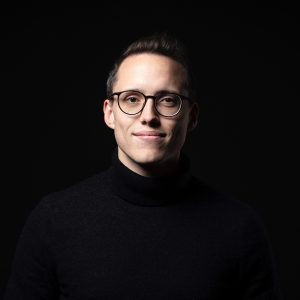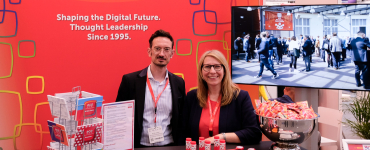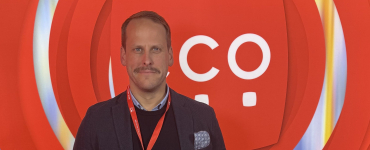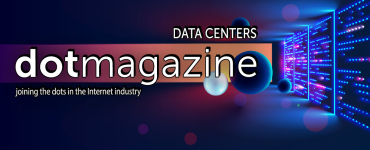How can the potential of blockchain be harnessed for industry, for example as an independent charging ecosystem for electric cars? Leonard Dorlöchter, Chief Product Officer and Co-Founder of peaq, talks about this in an interview.
Mr Dorlöchter, could you give us a brief introduction to peaq Technology?
Founded in 2017, peaq is a Berlin-based blockchain startup, working to transform the Internet of Things into the Economy of Things. With the Web3 peaq network, a sovereign and fair digital infrastructure is created on which machines, vehicles, robots and devices can conduct retail without central intermediaries. Furthermore, the peaq network enables economic mechanisms for individuals as well as companies to participate in the value creation of the machine economy.
Which digitalisation topics are particularly important to you?
We strongly believe that it is time to realise our original vision of how we can use our machines, technology, and the Internet for positive social change. The so-called Web3, also known as Web 3.0, is an important step in this direction and brings the basic idea of the Internet back to the people – a free digital world in which people operate and act with other people, share information and values without a third party being involved and without large technology corporations having data sovereignty. In other words, an Internet on the individual’s terms. We are actively working on and offering solutions related to the topics of data sovereignty and decentralization, which are very important topics for us.
For example, we are involved in the EU-funded Gaia-X MoveID consortium and are contributing to the European push for electromobility. In particular, the focus is on establishing a self-sovereign identity (SSI) and data sharing standard based on distributed ledger technologies for the entire automotive and mobility industry to enable collaboration, interaction and commerce in a barrier-free way while giving users full control over their data.
One of our major projects in this area is a solution for the decentralised charging of electric vehicles, which we started developing together with a German automotive group and are proceeding with now. We intend on creating an open, manufacturer-independent charging ecosystem with the help of the blockchain, in which every vehicle and every charging station receives its own SSI.
What are the special challenges of your industry now, and how are you working on them?
Our goal is to harness the democratic potential of blockchain for the (machine) economy. This is also the case in the automotive industry: One of the biggest hurdles to electromobility is the fragmentation of the charging station infrastructure and range anxiety. Blockchain technology and decentralised charging are the solutions to this problem: When cars and charging stations can communicate and bill each other directly, without intermediaries, this not only simplifies the charging and payment process for the end user but also creates the ideal environment for constructive cross-manufacturer collaboration between OEMs/OEMs and charging station providers: a neutral and unified platform that creates strong incentives to use more e-mobility to bring about social and sustainable change. This is because one thing is certain: decentralised charging will lead to greater acceptance of electric cars.
Another important field is the energy sector. Energy is an important component of the Economy of Things – and will be traded a lot in the future. If, for example, a smart home has its own identity, possible applications are also conceivable here: It could, for instance, buy and sell generated energy at the right time – depending on price trends. The future of the energy market will be decentralised: Houses will consume electricity and feed energy generated from solar panels into the Internet. Vehicles will charge bidirectionally and return power to the Internet when it is needed or when it is surplus. Basically, there are many micro-transactions that cannot be processed by banks due to their sheer number. This requires an efficient, decentralised transaction infrastructure.
How do you expect your membership in the eco Association to support you in this?
In these early days of the new German federal government with its super ministry for the economy and climate protection, our approach strikes a chord with the times: Sector coupling, i.e., the linking of the renewable energy sector with sustainable transport, will finally gain even more momentum. Our network approach will help tremendously in strengthening stakeholders in the field of electromobility and promoting the spread of their mobility offerings even more nationwide.
Together and in exchange with other members of the Association, the eco Competence Groups – especially in the area of IoT and Mobility, Gaia-X and Blockchain – political decision-makers and initiatives, it is our aim to contribute to the successful transformation towards a more sustainable future.
We are very much looking forward to this exchange with politics, industry and science.
What opportunities does digitalisation offer us in the future?
We are at a turning point in digitalisation: In the last decades, functionality, accessibility and usability have greatly increased – driven by the large technology companies. However, at a high price and at the expense of privacy, security and control. With Web3, we have the chance to give users back autonomy over their data through decentralisation. They can decide for themselves what information they share, how they interact and transact, and even own assets on the Internet – without third-party involvement.
We have a vision of a future where there is an Economy of Things. This refers to an ecosystem in which vehicles, machines, robots and devices – including cars and charging stations – can independently provide, monetise and trade all kinds of goods and services. So-called Machine NFTs allow individuals and companies to share in the Economy of Things. At the same time, they are part of the value creation of the machines. This enables new income streams for private individuals and can compensate for jobs that could become redundant at one point or another in the context of digitalisation.
But local industry will also benefit from this paradigm shift: In Germany, we are very good at producing items, i.e., machines and devices. Here we are the world market leader, and yet we currently have to hand over a great deal of value creation to the large hyperscalers because we do not have the necessary platform technology ourselves. With Web3, however, there is now the possibility of building decentralised marketplaces and generating added value with products. And it is precisely this added value that we are also concerned with. We see this as a real opportunity for German industry, removing the central middleman from many value chains and allowing companies to become a bit more independent in terms of data and value creation.
Leonard Dorlöchter is Chief Product Officer and Co-Founder of peaq. After graduating from the Technical University of Berlin, the business information scientist held senior positions in product management before turning to his passion for entrepreneurship. Since then, he has been involved in founding technology companies and established peaq in 2017, together with his co-founders.




